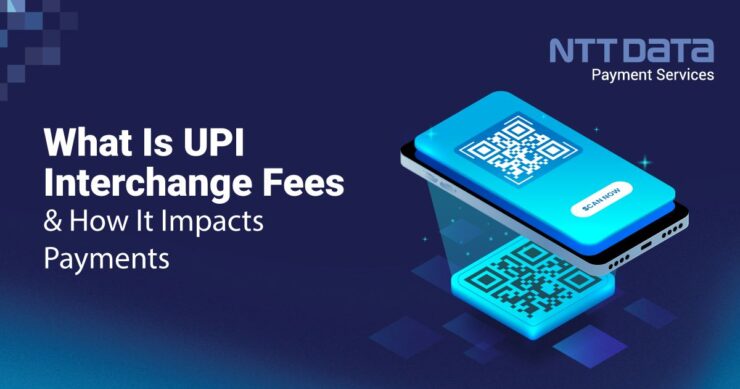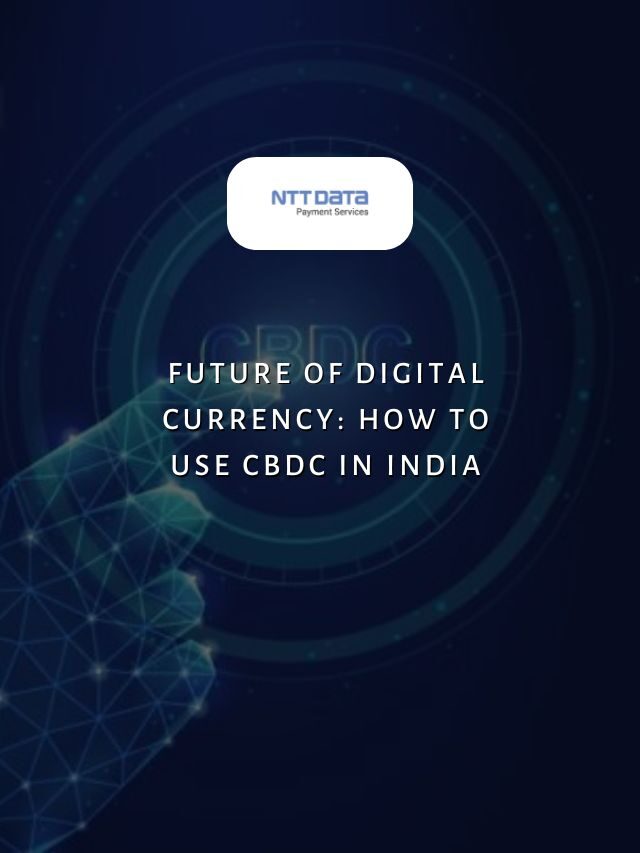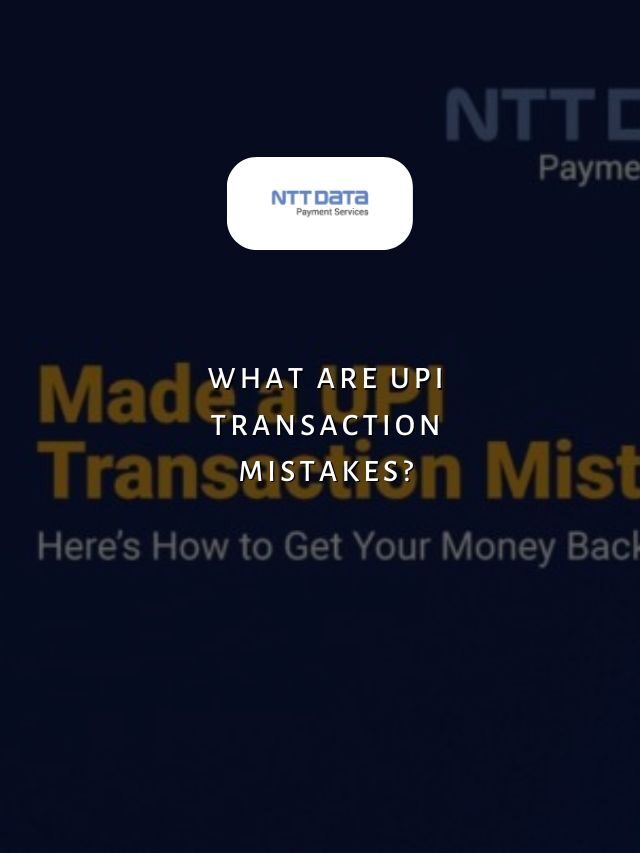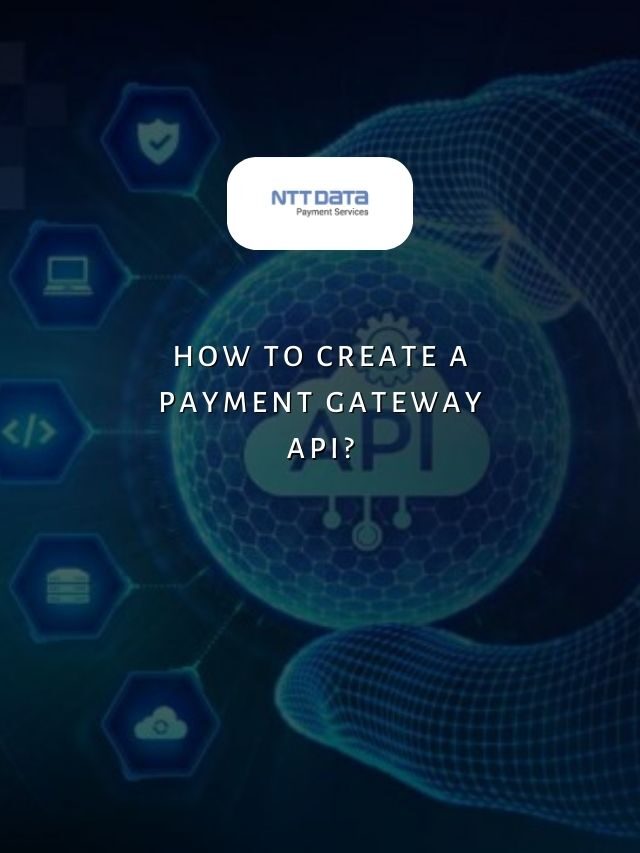
Table of Contents
- 1 Understanding the UPI Interchange Fee
- 2 Recent Web Stories
- 3 What is UPI Interchange Fee?
- 4 Working of UPI Interchange Fees
- 5 Impact on Payment Service Providers
- 6 Impact on Merchants
- 7 Impact on Customers
- 8 Make Your Online Transactions Seamless with NTT DATA Payment Services
- 9 Empowering Businesses without Affecting Customers through UPI Interchange
- 10 UPI Interchange Fee: FAQs
The National Payments Corporation of India (NPCI) recently introduced an interchange fee structure for Unified Payments Interface (UPI) transactions made through prepaid payment instruments (PPIs) like digital wallets.
But what exactly is this UPI interchange fee? And how will it impact online payments? Does this include regular person-to-person and person-to-merchant transactions? Should customers need to pay any surcharges as an interchange? In this blog, Let’s break down the UPI interchange fee and its impact in detail.
Understanding the UPI Interchange Fee
Unified Payments Interface (UPI), which has emerged as one of the most successful real-time payment systems. However, as UPI grows in scale and adoption, questions arise around its long-term sustainability.
NPCI’s new fee addresses this by generating a steady income for wallet issuers from merchant transactions over Rs. 2000. Fees will range from 0.5-1.1% based on the merchant category. Banks also benefit from wallet load charges.
Recent Web Stories
What is UPI Interchange Fee?
UPI interchange fee refers to transaction charges paid by merchants to payment processors or banks for accepting card-based or digital payments from their customers. It is usually a percentage of the transaction value.
Working of UPI Interchange Fees
In March 2023, NPCI proposed interchange fees of up to 1.1% for select UPI merchant transactions of Rs. 2000 or more made via wallets. The fees are only applicable to high-value transactions completed using PPIs at merchant locations. Regular person-to-person and person-to-merchant UPI bank transfers remain free of cost. Customers will not pay any surcharges, as the interchange is collected behind the scenes. While larger merchants may see a minor cost increase, most are unlikely to pass this on to customers. The nominal rates aim to promote continued UPI adoption without impacting users. Wallets now have funding to push merchant acquisition and innovation.
Overall, the move secures UPI’s leadership in supporting India’s digital revolution. For credit and debit card transactions, interchange fees help offset costs incurred by issuers in providing cards to customers and managing associated risks. Processors collect these fees from acquirers who facilitate merchant payments.
This fee structure allows card networks to remain financially viable while encouraging greater acceptance points. Similarly, interchange fees aim to balance revenue streams for all participants in a digital payment system. They promote interoperability and shared infrastructure usage. However, fees must remain nominal to not negatively impact merchant acceptance or user experience.
Key points about the UPI interchange fee structure
|
Impact on Payment Service Providers
- For digital wallet firms, interchange fees address concerns about the lack of a viable business model. It incentivises them to drive merchant acquisition aggressively.
- Fees collected can offset costs incurred in onboarding merchants and customers, managing risks, ensuring compliance, and more. This makes wallet-based payments sustainable in the long run.
- Banks also gain via wallet load charges. Currently, they miss out on potential fee income as customers use wallets without involving banks. The new structure addresses this imbalance.
- Overall, fees open up an avenue for payment providers to generate steady income streams from transaction volumes. This encourages continued product innovation and service improvements.
Impact on Merchants
- Merchant acquirers may pass on a portion of interchange fees to medium and large merchants. Smaller shopkeepers are exempt due to low transaction values.
- While larger merchants bear more wallet-based transactions, fees remain nominal at under 2% in most cases. Many may choose to absorb costs to boost volumes.
- Alternatively, some merchants could consider minimal surcharges for high-value wallet payments. But this risks frustrating customers and should be a last resort.
- Overall, the nominal fee rates are unlikely to impact most merchant businesses significantly.
Impact on Customers
- The key takeaway is customers will not pay any additional charges for making UPI transactions as before. Interchange fees are collected from merchant acquirers by wallet issuers behind the scenes.
- Customers can continue using their preferred wallet or bank account freely for UPI payments. The experience remains seamless with zero switching costs.
- This protects adoption while addressing long-term sustainability concerns. It ensures UPI remains people-centric in line with NPCI’s vision.
Make Your Online Transactions Seamless with NTT DATA Payment Services
UPI interchange fees plays a significant role in keeping this UPI framework in place by allowing seamless online payments from customers and empowering businesses, leading India’s digital payments revolution to even greater heights in the coming years. As a leading payment solutions provider in India, NTT DATA processes millions of UPI transactions every day for merchants across various industries.
NTT DATA Payment Services offers a complete payment solution to advance both your offline and online businesses from,
- Online Payment Gateway
- POS machines
- IVR payments
- Mobile applications, and
- Bharat QR Scan and Pay
We ensure maximum comfort, convenience, and safety for all your payments.
Empowering Businesses without Affecting Customers through UPI Interchange
The interchange fees for certain UPI merchant transactions is a balanced approach by NPCI to foster long-term sustainability and continued innovation in India’s digital payments ecosystem. While nominal fees will be collected from merchant acquirers, everyday customers can continue enjoying free and seamless UPI experiences.
By providing a viable revenue stream for payment service providers, interchange fees incentivise further investment in merchant acquisition and product development. This will strengthen UPI infrastructure and help expand acceptance nationwide.
The fee structure promotes greater interoperability between bank accounts and digital wallets on UPI. This enhances convenience for users while driving greater financial inclusion across India.
| Also, you can get frequent updates on nttdatapayments Instagram page. |
UPI Interchange Fee: FAQs
1. What is the interchange fee for UPI payments?
The National Payments Corporation of India (NPCI) has introduced an interchange fee structure for certain UPI merchant transactions made via prepaid payment instruments (PPI) like wallets. The fee will be in the range of 0.5-1.1% of the transaction value and applicable only on transactions of Rs. 2000 or more with specified merchant categories.
2. Who benefits from UPI interchange fees?
UPI interchange fees are expected to generate a steady revenue stream for payment service providers like digital wallets to help offset costs and remain financially sustainable in the long run. It also provides banks with an incentive to drive merchant acquisition and adoption of UPI payment services.
3. What transactions are exempt from UPI interchange fees?
Peer-to-peer (P2P) transactions between individuals and transactions below Rs. 2000 with small merchants are exempt from UPI interchange fees. The fees only apply to high-value merchant transactions conducted via prepaid payment instruments.
4. What is the difference between an interchange fee and a processing fee?
While interchange fees are charges merchants pay to payment providers, processing fees are charges merchants pay to payment gateways/acquirers for facilitating transactions. Interchange fees aim to balance revenue streams for payment networks.
5. How do UPI interchange fees impact merchants and customers?
For most merchants, the nominal interchange fee rates of 0.5-1.1% are unlikely to impact businesses significantly. Larger merchants may pass on costs selectively. Customers continue enjoying free P2P UPI experiences as fees are implemented behind the scenes without any additional charges for users.







